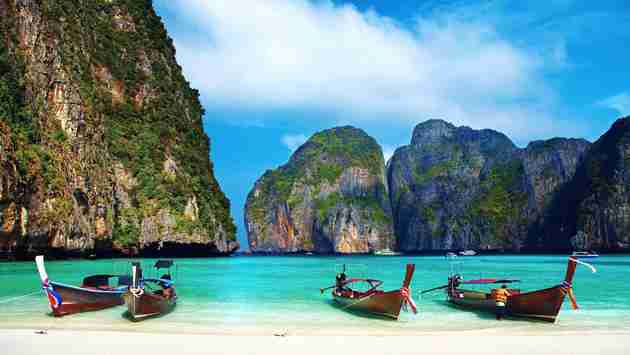It seems that Thailand may soon be slackening some of its stringent travel restrictions and regulations on foreign visitors in an effort to rekindle its once-booming tourism sector.

A proposal is being submitted to the Centre for COVID-19 Situation Administration (CCSA), which (if it passes) would enable tourists to leave their hotel room after the first three days of their mandatory 14-day quarantine. Under current rules, travelers must quarantine at a government-approved Alternative State Quarantine property and spend most of the two weeks in their hotel room.
This new initiative—called the Area Hotel Quarantine (AHQ) proposal—was introduced during a video conference held yesterday, which was chaired by Thailand’s Tourism and Sports Minister Phiphat Ratchakitprakarn, and attended by ministry officials, industry stakeholders and officials from the Department of Health Service Support.
Under AHQ, visitors would be PCR-tested on the third day of their stay at participating hotels and, if they receive negative results, they’d be allowed to leave the confines of their room; although they would not be permitted to leave the hotel grounds. While this still might not sound like the most fun you've ever had, it would certainly constitute an improvement in terms of the traveler experience.
The Bangkok Post reported that this policy change could go into effect as early as April, and would initially be targeted toward the country's top five tourist destinations: Chiang Mai, Phuket, Krabi, Surat Thani and Chon Buri. The local outlet said that AHQ is part of the Thai government’s plan to initiate a wider reopening of the country, starting next month.
The CCSA panel will also be considering a proposal that would waive the quarantine requirement for visitors who have been fully vaccinated against COVID-19. The nation’s local tourism industry has reportedly petitioned for the lifting of mandatory quarantines by July 1 in hopes of welcoming back throngs of vaccinated visitors.
According to Bloomberg , tourism accounted for around one-fifth of Thailand’s GDP in pre-pandemic times, making it a major driver of Southeast Asia’s second-largest economy.
Currently, U.S. tourists are permitted to visit Thailand, but there are a lot of hoops to jump through. They must apply for a special Visa and Certificate of Entry and receive approval prior to travel, provide negative results from a COVID-19 PCR test taken within 72 hours of their departure and be tested again upon arrival.
From the airport, travelers proceed directly to their pre-booked Alternative State Quarantine hotel, where they’ll spend the next 14 days. Foreign visitors are also required to provide proof of travel health insurance with policy coverage of up to US$100,000 for COVID-related medical costs.
While quarantined, guests are essentially restricted to their hotel rooms, with meals delivered directly to their doors three times daily. Staff from a partner hospital are brought in to test them two or three more times during the isolation period. If the second test comes back negative, one might be allowed out of his or her room to use certain hotel facilities, depending upon the particular property’s policies.
